Womb transplants: should we be concerned?
This week, the Health Research Authority granted ethical approval for a trial of ten uterine transplants, with a view to allowing women without a womb a chance to conceive and carry their own child. This follows on from three successful pregnancies in Sweden over the last twelve months to women who have had such transplants.
The techniques and technologies for this procedure have been in development for the last two decades. The first womb transplant was in Saudi Arabia in 2002. It took until earlier this decade for the techniques to be advanced enough to allow for a pregnancy to be carried to term.
The HRA approval rests on a set of strict criteria and the raising of not inconsiderable funds. The criteria for acceptance on the trial are that the woman should be aged between 24 and 38 years old (or 40 if eggs were frozen before 38), eligible for NHS care, have no significant medical problems and a BMI of less than 30kg/m2. They should be able to live in the UK as a resident for as long the grafted uterus is in-situ post operatively, have a long-term partner, have their own ovaries and eggs (i.e. no donor eggs), and be fluent in the English language.
The funding is coming from charitable donations. Half a million pounds is needed to run the trial – coming in at £50,000 per transplant. So far only about £40k has been raised by the charity Womb Transplant UK.
The donor will be a woman with a healthy uterus, who is brain dead but with a heartbeat. Live donors will not be accepted at this stage, largely because the surgery requires removal of a large part of the uterine blood supply, as well as the organ itself, risking greater trauma to a living donor than is deemed acceptable. Organ retrieval will take about three hours, and the actual transplant a further six hours, requiring a team of twelve to complete both procedures.
The recipient will remain on immunosuppressant drugs for twelve months. If at this stage the uterus has not been rejected and there are no other complications, IVF embryos, fertilised and frozen before the transplant, will be implanted. Up to two pregnancies will be tried, the woman remaining on immunosuppressants throughout. The transplanted uterus will be removed surgically about six months after the birth of the second child.
The Swedish trial has had a 78% success rate (seven out of nine transplants) and three successful pregnancies so far.
Given that around 50,000 women of child bearing age in the UK are thought to have no viable womb, this trial is going to garner a lot of attention. Infertility is a cause of great distress for many couples, and particularly for the women affected, can be a cause of real suffering. We cannot diminish the significance of any procedure that offers even a glimmer of hope to those so affected.
But there are some questions and concerns.
First, we need a hefty dose of reality. Viable donors are going to be very rare – it is estimated that maybe five wombs a year may be available by the criteria of this trial. In addition, maybe only one in three women who want such a procedure would be able to undergo it. With so few so far having undergone this procedure and having a child successfully, we still do not know what the overall success rate will be, nor about any medium to long term complications for mother and child. However, such factors alone should never deter medical research into an area of such genuine need. Without brave patients and medical teams willing to take these kinds of risks, many lifesaving and life enhancing procedures that we now take for granted would never have been developed.
Of more concern are the ethical implications of this procedure.
First, because the transplanted uterus will not be connected to the fallopian tubes, the pregnancy will have to be achieved through IVF. The process the team are using is to harvest a number of eggs, fertilise them with the partner’s sperm, and then freeze the embryos awaiting transplantation a year down the line. As only two pregnancies are to be attempted for each woman, it means that several embryos will be ‘discarded’. This is an area of ongoing ethical concern in fertility treatment – treating actual or potential human beings as commodities to be used or disposed of. We wonder why a technique involving egg freezing and then fertilising one at a time as needed is not used instead. This may be more time consuming and costly, but avoids the troubling practice of disposing of ‘unwanted’ human embryos.
Second, concerns and debates abound about the definition of brain death and when it is appropriate to sustain respiration and heart function artificially to allow organ harvesting. Pressure to secure organs for donation lead some to question how ethical our definitions and procedures are around end of life and organ retrieval criteria.
Finally, this is a massively costly and labour intensive procedure. It puts a woman through considerable physical distress and medical risk – at least three major operations (including a caesarean section for the delivery) and up to three years (or more) on immunosuppressant drugs (which have many unpleasant side effects, from raised blood pressure, to increased risks of diabetes and cancer), requiring several hours of theatre time and a dozen skilled surgeons and theatre nurses. There is a genuine question about whether, even if the trial is successful, the NHS will choose to fund this procedure nationally. With diminishing resources in the face of mounting demand, will uterine transplantation be seen as a priority by NICE or by CCGs and NHS Trusts?
It may be that in the long run we find procedures that get around these ethical and safety concerns, and that costs come down considerably. If an ethically safe, financially viable version of this procedure can be developed it could offer hope of a near normal pregnancy for some women and couples denied such a human joy. But it will not be the answer for the majority of those affected, and we must continue to support other options, especially adoption, for women unable to carry their own child.

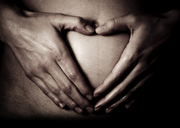
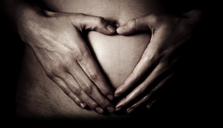
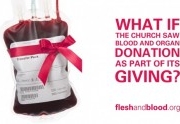
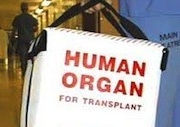
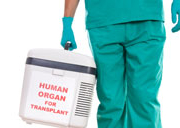
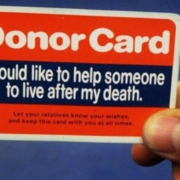


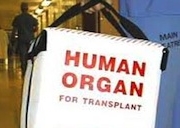


Leave a Reply
Want to join the discussion?Feel free to contribute!